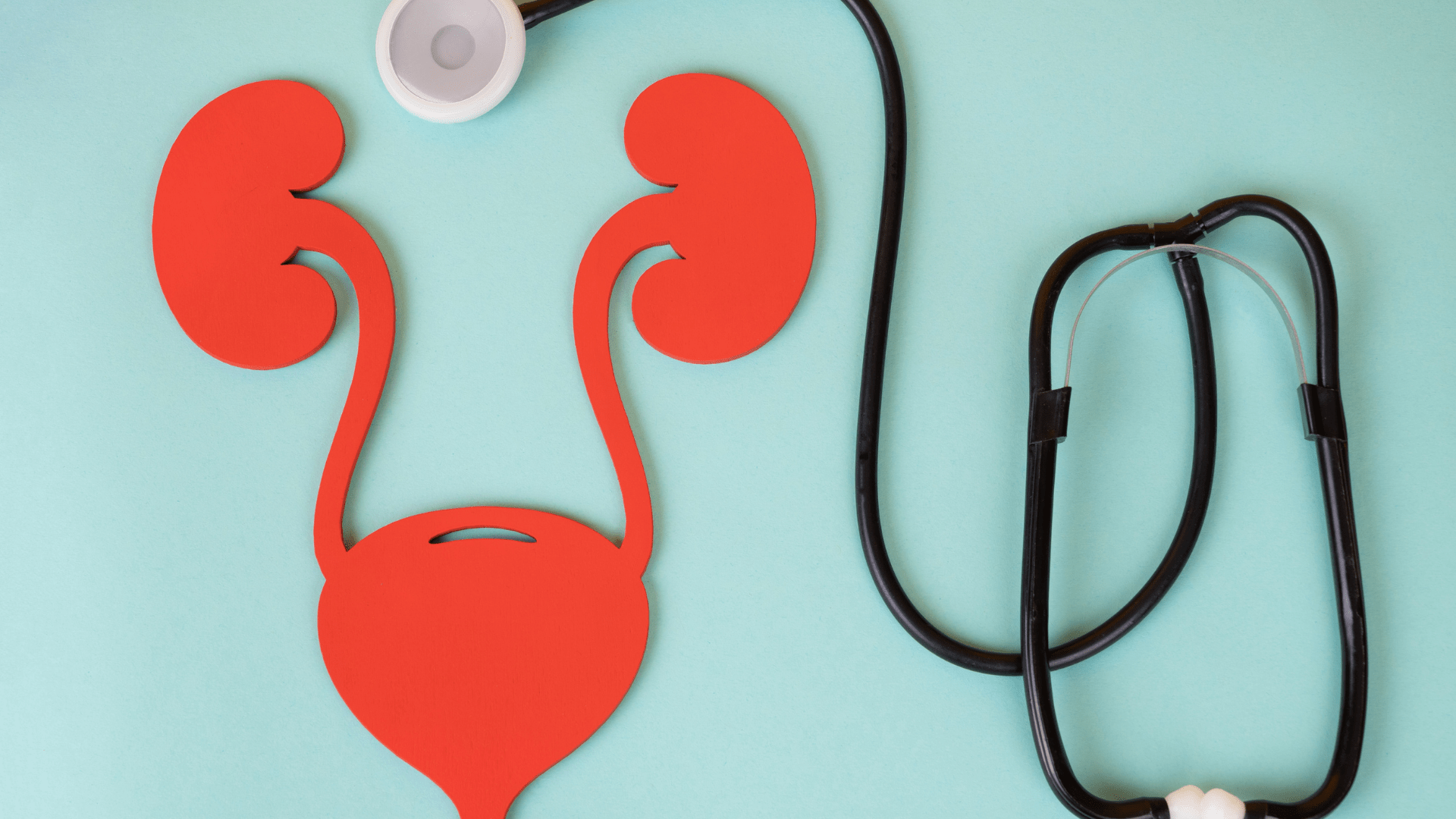Let’s talk about something that doesn’t always get the attention it deserves — your cervix.
It’s something you probably don’t think about, unless you’re at your doctor’s office, legs up and wondering how long the exam is going to take, or you’re in a completely different legs-up situation (you know the one).
But what if we told you that this small, but mighty part of your reproductive system is doing way more behind the scenes than you think? And if you want to make sure she’s happy and thriving, 2 things matter big time – Pap smears and HPV screenings.

What Is the Cervix and Why Does It Matter for Your Health?
The cervix is the lower part of your uterus (womb) that opens into the vagina. Think of it like the gatekeeper between your uterus and the outside world. She’s a busy girl and she does a lot, including:
- Allowing your menstrual blood to flow out.
- Opening during childbirth to allow the baby to come out.
- Producing mucus that either allows or blocks the sperm, depending on where you are during your menstrual cycle.
However, your cervix is also vulnerable to changes in its cells due to a virus called Human Papillomavirus (HPV), which can affect your cervical and even your overall health.
What Is HPV?
HPV is the most common sexually transmitted infection in the world. It is found in 85% of people who are sexually active.
There are over 100 types of HPV. Some of them are harmless and go away on their own, thanks to your amazing immune system. But the others might be difficult.
There are low-risk types, which can cause genital warts (annoying, but not life-threatening), and there are high-risk types that can lead to more serious conditions like cervical cancers if left unchecked. The 2 main villains are HPV 16 and 18.
If you’re already saying, “It can never happen to me”, we feel you, but here’s the part most people don’t realise – It’s a sneaky little virus that doesn’t discriminate. Most people can have it for years without symptoms and can still pass it on to someone else.
It’s not just about rejecting it verbally and doing nothing, but being ahead of the game and taking the right actions.
How to Prevent HPV
Now that we know HPV can be a troublemaker, how can you protect yourself?
1. Vaccination: This is the best way to prevent HPV. There are 3 main HPV vaccines approved globally:
- Cervarix: Protects against just HPV 16 and 18, the strains linked to cervical cancer. You take 3 doses at 0, 1, and 6 months.
- Gardasil: Protects against both the high-risk HPV 16 and 18, and the low-risk HPV 6 and 11 (the culprits behind most genital warts). You also take 3 doses, but at 0, 2, and 6 months.
- Gardasil-9: Protects against 9 strains of HPV, including the ones that cause cancer and genital warts. It is the most comprehensive. You take 2 doses, at 0 and 6 months. The dose can be more frequent if you’re older than 15 or have issues with your immune system.
The best time to get the vaccine is before any sexual activity. Nigeria has included it in the National Programme on Immunisation schedule, and it is free for girls between the ages of 9-12 years.
But if you’re older (less than 45 years) and haven’t been exposed to the virus, you can still get vaccinated. You’ll just have to pay out of pocket.
If you’ve already been exposed to HPV, then the vaccine may not be as effective.
Boys and men should also get the vaccine to not only prevent the spread, but also prevent genital warts and certain cancers like penile cancer.
2. Condoms: This can offer some protection, but you should know that HPV can spread from skin-to-skin contact during sex, even without penetration.
3. Regular cervical screening: This can serve as an early warning system. Screenings like pap smear and HPV testing can catch the virus or any suspicious changes in your cervix before it becomes a bigger problem (more on that later).
What Is a Pap Smear?

The Pap Smear is a quick cervical screening test to check for any abnormal cells in your cervix. These abnormal cells can be caused by HPV, and in some cases, they can turn into cervical cancer if left untreated.
It’s not a diagnostic test, so it doesn’t tell you if you have cervical cancer, but it is a great way of playing detective and sniffing out trouble before it becomes troublesome.
What Happens During a Pap Smear?
Honestly, it’s not the most glamorous experience out there, but it’s a quick one that is over before you know it.
- You lie down on the exam table with your feet up in stirrups.
- Your doctor gently inserts a speculum into vagina to keep it open and visualise your cervix.
- Then, your doctor uses a small spatula or brush to collect a few cells from your cervix and then sends the sample to the lab.
That’s all! It can be a bit uncomfortable, but it’s a small price to pay for early detection.
Pro tip: Try to schedule the test when you’re not on your period and avoid sex or any vaginal products 24-48 hours before so your results are as accurate as possible.
What Are Other Types of Cervical Screening?
Pap smear isn’t the only detective in town. Another important test is HPV molecular testing, which directly looks at the genetic material of high-risk HPV strains that lead to cancer.
You can also do the full combo of pap smear and HPV test as a sort of double check.
When to Check In on Your Cervix
So, we’ve talked about vaccines, pap smears, and HPV testing, but how frequently should you go for cervical screening?
If you’re between 25 and 65 years old, here’s what is recommended:
- If you’re doing just a pap smear and it comes back normal, you only need to do it once every 3 years.
- If you’re doing both pap smear and HPV testing, and they are both normal, you’ll repeat them in 5 years.
- If your results are abnormal, your doctor will guide you on the next steps.
You’ll still need screening even if you’re vaccinated because no vaccine covers all the HPV types.
Final Thoughts
Your cervix is a superhero, quietly doing its job without the cape. So, give it some love with regular screenings, because when it comes to cervical health, a little care can go a long way.
If you’d like to speak to a gynaecologist, our team of friendly doctors is here to help.
References
HPV (Human Papillomavirus): Causes, Symptoms & Treatment
Pap Smear: Test, Age, Duration, Results & Frequency




